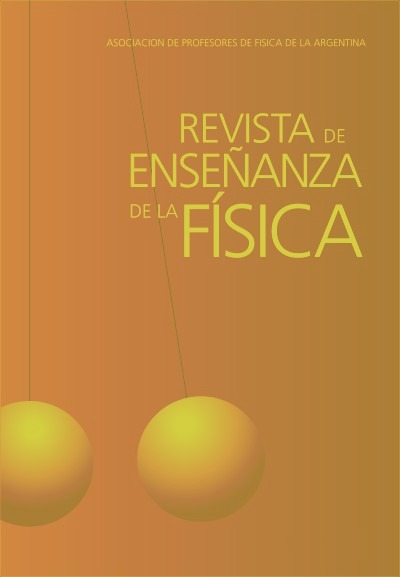First advances towards the understanding of the role of the interaction with peers and teachers in the evolution of private knowledge of mechanics
Keywords:
Conceptual change, Epistemological change, Systematic innovationAbstract
Previous studies conducted by our group allowed us to develop a model for the cognitive structure of the mechanics initial private knowledge which led to the formulation of recommendations for teaching, and to the development of a teaching proposal which has been implemented and systematically improved over the last four years. This proposal is based on the hypothesis that social interaction is required for allowing the individuals to adopt normative knowledge schemes which, from an individual perspective, wouldn’t have incentives to achieve. In this work we show the first systematic study which puts this hypothesis to test in controlled conditions, through the register of a debate during a virtual activity in a short course introducing university to freshmen.
Downloads
Published
Issue
Section
License

This work is licensed under a Creative Commons Attribution-NonCommercial-NoDerivatives 4.0 International License.
Aquellos autores/as que tengan publicaciones con esta revista, aceptan los términos siguientes:Los autores/as conservarán sus derechos de copiar y redistribuir el material, bajo los términos estipulados en la Licencia de reconocimiento, no comercial, sin obras derivadas de Creative Commons que permite a terceros compartir la obra bajo las siguientes condiciones:
- Reconocimiento — Debe reconocer adecuadamente la autoría, proporcionar un enlace a la licencia e indicar si se han realizado cambios. Puede hacerlo de cualquier manera razonable, pero no de una manera que sugiera que tiene el apoyo del licenciador o lo recibe por el uso que hace.
- NoComercial — No puede utilizar el material para una finalidad comercial.
- SinObraDerivada — Si remezcla, transforma o crea a partir del material, no puede difundir el material modificado.
- Los autores/as podrán adoptar otros acuerdos de licencia no exclusiva de distribución de la versión de la obra publicada (p. ej.: depositarla en un archivo telemático institucional o publicarla en un volumen monográfico) siempre que se indique la publicación inicial en esta revista.
- Se permite y recomienda a los autores/as difundir su obra a través de Internet (p. ej.: en archivos telemáticos institucionales o en su página web) antes y durante el proceso de envío, lo cual puede producir intercambios interesantes y aumentar las citas de la obra publicada. (Véase El efecto del acceso abierto).










